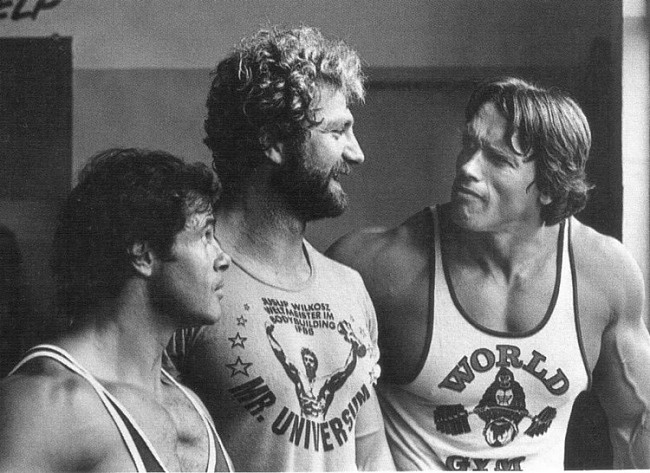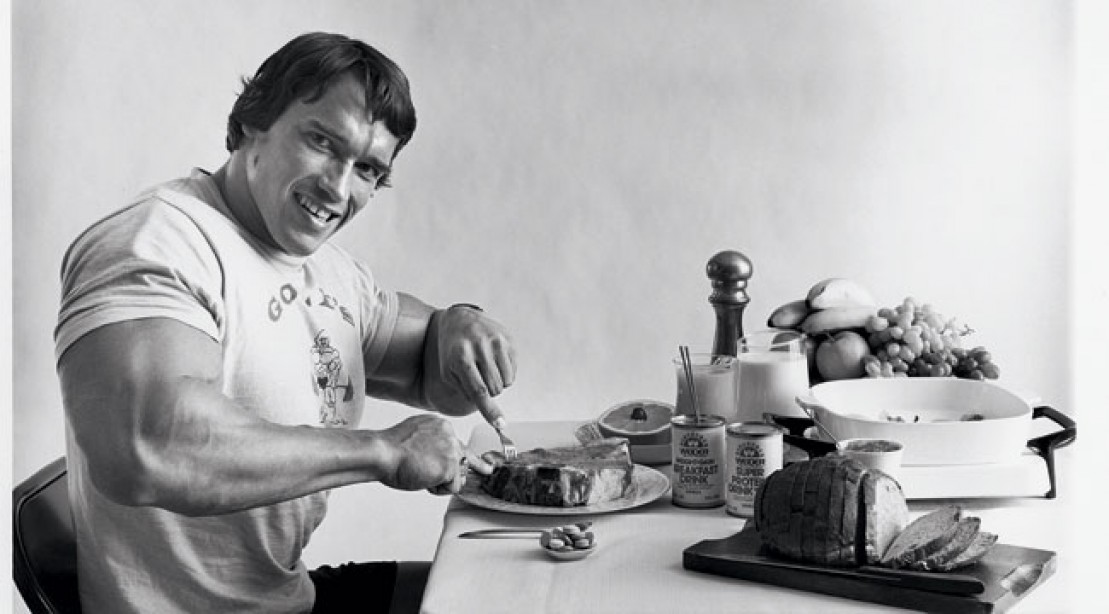This past week, we spent a lot of time outlining why the 2000 calorie diet doesn’t really apply to you, and that with so much of your life already tailored to your needs; from your phone, to your class schedule, to ordering an extra sunny-side up egg with your burger — why isn’t your diet too?
This week, we will explore the two key aspects of building good nutrition habits:
1.) How you should eat.
2.) What you should eat.

Move away from thinking of yourself as “on a diet.” When you’re “on a diet” you’re not making a lifestyle change — it’s a temporary solution. Once you reach a point, you’re okay with migrating back to your bad eating habits, because “I was only on a diet so I didn’t look like a total fat-ass when I went to Cabo with my bros.”
What we are aiming to build are guidelines that help you develop consistently good eating habits, rather than a temporary “diet” you’re only kind of following. Better understanding what sort of fuel you’re putting into your body is essential to both your fitness goals, and your overall well-being. Now, as mentioned last week, this doesn’t mean you need to religiously count calories, but instead develop an intuition for how you have consumed today, and how much more you can consume, to get closer to your goals. Here are some basic guidelines we’ve come up with after getting feedback from bodybuilder, power-lifters, runners, and normal dudes alike:
Consistency — fuel your body and mind throughout the day.
When thinking about restructuring eating habits, people always think “I need to eat less.” Now, the thinking here is that, “If I’m eating less, then I should lose weight, right?” Although at a basic level this is correct, reducing how many meals you’re eating in an effort to lose weight is like, being too f*cked up, and doing a line of cocaine to clear your head and sober up — its couterproductive. You’re only making a problem worse, because by reducing how frequently and how much you’re eating, you’re forcing your body into a starvation state: your body is in panic mode because you’re not feeding it enough, and it begins to hold onto everything it already has — be that food you’re eating, or fat you already have.
This principle applies to the other direction too: If you ramp up the frequency of your meals daily, your body and metabolism ramp up too. When you look at bodybuilders (or Michael Phelps and his 20 pancakes like we did last week), you see them consuming upwards of 5 or 6 meals in a day, which is not only what their bodies need to maintain that level of activity, but also helps keep their metabolic rate constantly elevated, helping them either pack on more muscle, or burn up more fat. In summary, eat more throughout the day.
High Octane — fuel your body and mind well
“So I should eat more? Okay…so I can eat frozen pizzas six times a day?” False. Think of your body as a race car: Would you put subpar fuel in your car if you’re trying to win?
Nutrients in food can be broken down into Protein, Fats, and Carbohydrates; the three types of “macro-nutrients.” The word “protein” is derived from “protos”, Greek for “of prime importance.” As the name suggests, proteins are the building blocks of much your body, and a critical component to reaching your health goals — everything from your DNA replication, to catalyzing metabolic action and repairing tissue to build muscle, is influenced by your protein intake. Fats are the most energy dense of the three macro-nutrients, help you feel full, and provide valuable nutrients to your brain and body alike. Carbohydrates, which typically get a bad rap as being responsible for gaining body fat, are easiest for your body to convert to fuel, and therefore are the preferred source of fuel by your body. Carbs are critical to feeling energized, the same way fats are critical to you feeling full, and proteins are critical to repairing damaged tissue post-workout.

A good rule of thumb is to consume 1 – 1.5 grams of protein per pound of body weight — this means a 200 lbs male should consume about 200 – 300 grams of protein a day, if they’re trying to transform their body from a minivan to a formula 1 car.
“High Octane” protein rich food choices:
- Chicken & Turkey
- Lean Beef
- Low-fat Dairy
A good rule of thumb is to consume between .5 – 1 gram of fat per pound of body weight — this means a 200 lbs male should consume below 200 grams of fat a day, and the amount of fat you eat should never drop below 15% of your daily diet. This will help keep testosterone and stress hormones at a healthy level, keeping you mentally sharp, and keeping you physically healthy.
“High Octane” healthy fat (Omega 3s, Saturated, Polyunsaturated, and Monounsaturated) choices:
- Olive oil
- Flax-seed
- Canola oil
A good rule of thumb when trying to gain mass is to consume ca 2-3 grams of complex carbohydrates per pound of body weight, whereas that should be cut in half when trying to cut weight. This means a 200 lbs male should consume between 300-600 grams, depending on their fitness goals.
“High Octane” complex (slow burning) carb choices:
- Anything whole grain
- Brown rice
- Sweet potatoes
- Bananas
Now that you have more information about what fuels help you transform into a race-car, you can use these pie-charts to determine what your percentage break down, or “macros” of your diet should roughly be, depending on your fitness goals:





